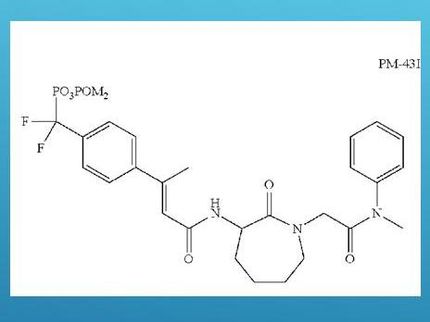Altair Therapeutics reports successful Phase I study of inhaled AIR645
Advertisement
Altair Therapeutics, Inc. announced positive results from a phase I multiple dose safety and pharmacokinetic study of its lead product, once-weekly inhaled AIR645 in healthy adults and mild asthmatics. The results were presented by Dr. Michael Hodges, M.D., Chief Medical Officer for Altair Therapeutics at the European Respiratory Society Annual Congress in Vienna.
AIR645 is a non-steroidal dual inhibitor of cellular responses to interleukin (IL)-4 and IL-13. These pro-inflammatory cytokines orchestrate the adaptive immune response to inhaled allergens and viruses and the development of chronic inflammation in asthma, rhinitis and other respiratory disorders. The randomized, placebo-controlled trial evaluated the safety, tolerability, bioavailability and pharmacodynamic activity of nebulized AIR645 at multiple dose levels in 32 healthy adult subjects (0.3, 3, 10, and 20 mg/dose) and eight mild asthma subjects (20mg/dose). Subjects were sequentially randomized (six active: two placebo) and received six doses on study days 1, 3, 5, 8, 15 and 22.
AIR645 was safe and well tolerated. No dose-limiting toxicities or safety signals were detected in this clinical study. Adverse effects were mostly mild and none were considered severe, significant, or serious and no subjects were discontinued due to adverse events.
AIR645 exposure in sputum was found to be dose-dependent, and no accumulation of drug was evident. AIR645 half-life in sputum was calculated to be approximately 5 days. AIR645 concentration was >1000-fold higher in sputum than in plasma, indicating very low systemic bioavailability of the drug.
Following repeated inhalation of AIR645 evidence of anti-inflammatory biomarker activity was seen in subjects with mild asthma (those that had baseline elevations of biomarkers), including reductions in serum total IgE, sputum eosinophils or level of 15-HETE in sputum.
Most read news
Topics
Organizations
Other news from the department research and development

Get the life science industry in your inbox
By submitting this form you agree that LUMITOS AG will send you the newsletter(s) selected above by email. Your data will not be passed on to third parties. Your data will be stored and processed in accordance with our data protection regulations. LUMITOS may contact you by email for the purpose of advertising or market and opinion surveys. You can revoke your consent at any time without giving reasons to LUMITOS AG, Ernst-Augustin-Str. 2, 12489 Berlin, Germany or by e-mail at revoke@lumitos.com with effect for the future. In addition, each email contains a link to unsubscribe from the corresponding newsletter.






















































